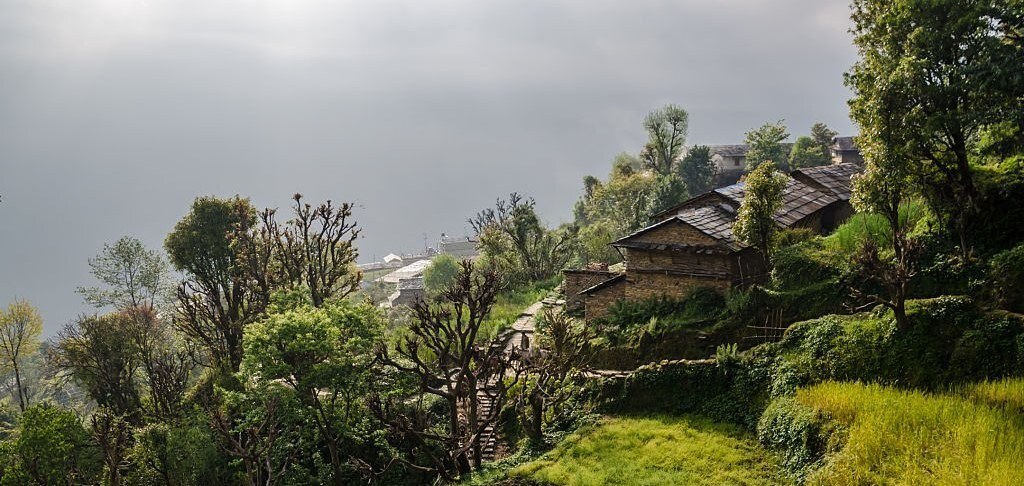As we step into the world of travel, we need to remember our responsibility towards the places we visit. Ethical and sustainable travel has become crucial in recent years, with the rising awareness of tourism’s adverse effects on local communities and the environment.
From supporting locally-owned businesses to respecting local cultures and customs, ethical travel encompasses a broad range of activities.
The United Nations World Tourism Organization declares that international tourist arrivals reached 1.5 billion in 2019, and this number is expected to grow in the coming years.
However, while tourism can bring economic benefits, it can also have negative impacts, such as overcrowding, environmental degradation, and cultural homogenization.
Ethical travel aims to mitigate these negative impacts, ensuring that tourism benefits everyone involved.
The Importance of Homestay in Nepal
Homestays have become an increasingly popular way to experience local cultures and support communities in Nepal. The country boasts diverse landscapes and cultures, from the towering Himalayan peaks to the lush jungles of the Terai.
Homestays provide visitors with an immersive cultural experience, allowing them to learn about the local way of life and participate in daily activities. Also, homestays offer host families economic benefits as the money paid for the stay goes directly to them.
Visitors can also participate in community-based conservation projects, such as tree planting and wildlife monitoring, providing a positive contribution to the environment.
Homestays also offer a way to bridge cultural divides and promote understanding between people from different.
The Positive Impact of Homestay in Nepal
Nepal is a county that is rich in cultural heritage and natural beauty. It has become increasingly popular among travellers seeking an authentic experience, and homestays have emerged as a popular alternative to traditional accommodation.
Homestays offer visitors an opportunity to stay with a local family and experience Nepali culture firsthand.
But the benefits of homestays extend beyond just the visitor’s experience. Let’s explore the economic and social benefits for the local community and the environmental impact of homestays.
1. Economic and Social Benefits for Local Community
Homestays provide a unique opportunity for local families to earn income and become self-reliant. In many rural areas of Nepal, agriculture is the primary source of income.
But homestays offer an alternative income stream for families, which can help supplement their income and create economic stability. Additionally, homestays provide opportunities for skill development and job creation in the tourism sector.

Homestays also promote social and cultural exchange between visitors and locals. Visitors gain a deeper understanding of the local culture, traditions, and way of life while the host family learns about different cultures and customs.
This interaction fosters mutual respect and understanding, positively impacting the local community’s social fabric.
2. Environmental Benefits of Homestays for Sustainable Tourism
Tourism can have a significant environmental impact, such as overcrowding, pollution, and degradation of natural resources. But homestays offer a more sustainable tourism model that minimizes the negative consequences.
Visitors who stay in homestays are often more mindful of their environmental impact and can participate in eco-friendly activities such as wildlife monitoring, tree planting, and waste reduction initiatives.
Homestays also promote responsible tourism practices and encourage visitors to respect the environment and the local culture.
3. Examples of Successful Homestay Programs and Their Impact
One of the most successful homestay programs in Nepal is the Community Homestay Network, established in 2010.
It allows local families to host tourists and offer a glimpse into Nepali life. The program has grown significantly over the years, with over 200 homestays in different parts of Nepal.
The Community Homestay Network has dramatically impacted the local community, providing an alternative income stream for families, creating job opportunities and fostering cultural exchange.
Another successful homestay program is the Village Tourism Promotion Forum in Sirubaru, a small village in the Annapurna region of Nepal. The program was launched in 2000 and has transformed the village’s economy, making it an attractive tourist destination.
The program has created jobs for locals, improved infrastructure, and raised awareness of environmental conservation. The homestay program in Sirubari has also had a spiritual impact on the community, fostering a sense of pride and unity among the villagers.
Ethical Consideration for Homestays in Nepal
Homestays in Nepal offer a unique opportunity to experience the local culture and support the local community.
However, as responsible travellers, it’s essential to consider the ethical implications of our actions. Here are some ethical considerations to keep in mind when planning a homestay in Nepal.
1. Introducing Responsible and Ethical Travel Practices
Responsible travel practices involve minimizing the negative impact of tourism while maximizing the positive result. One way to do this is by choosing environmentally friendly and sustainable accommodation options, such as homestays.
Additionally, it’s essential to respect the local culture and customs, support the local economy, and participate in eco-friendly activities.
2. Consideration for Cultural Sensitivity and Respect
Nepal is a diverse country with a rich cultural heritage, and it’s important to be sensitive and respectful towards the local culture; it’s important to dress modestly and respectfully, especially when visiting religious sites or interacting with locals.
Additionally, it’s essential to learn about local customs and traditions and follow them accordingly. For example, removing shoes before entering someone’s home is a typical Nepali custom that visitors should observe.
3. Tips for Supporting the Local Community and Environment Through Homestays
Homestays are an excellent way to support the local community and environment. Here are some tips to ensure your homestay experience is ethical and sustainable:
- Choose a homestay that is part of community-based businesses, such as the Community Homestay Network, which ensures that the local community benefits from tourism.
- Participate in local activities and support local businesses, such as buying souvenirs from local artisans and eating at local restaurants.
- Respect the environment by conserving water, minimizing waste, and participating in eco-friendly activities such as tree planting or wildlife monitoring.
- Be open-minded and respectful towards your host family, and be willing to learn about their way of life and culture.
Ethical considerations are crucial when planning a homestay in Nepal. Responsible and ethical travel practices involve minimizing the negative impact of tourism while maximizing the positive result.
Supporting the local community and environment through homestays is an excellent way to ensure your travel experience is ethical and sustainable.
The Visitors Experience: An Introspection Through the Lens of Visitors
Homestays in Nepal benefit the local community and the environment and offer visitors a unique and authentic travel experience. Here are some of the ways in which homestays help visitors.
1. How Homestays Benefit the Visitors
Homestays provide an opportunity for visitors to immerse themselves in the local culture, learn about the daily lives of locals, and build connections with the local community.
Visitors also get to experience authentic Nepali cuisine and hospitality, which is an enriching and unforgettable experience.
Additionally, homestays provide visitors with a unique and off-the-beaten-path travel experience. Visitors get to explore rural areas and experience the natural beauty of Nepal while supporting sustainable tourism practices.
2. Unique Cultural Immersions and Authentic Experiences
Homestays offer various types of individual cultural immersions and authentic experiences. Here are some examples:
- Learning about Nepali culture and traditions, such as traditional dance, music, and clothing.
- Participating in daily household activities like cooking, farming, and animal husbandry.
- Exploring local markets and learning about local products, such as handmade textiles and pottery.
- Visiting religious and historical sites and learning about their significance.
- Participating in eco-friendly activities, such as tree planting and wildlife monitoring.
These unique cultural immersions and authentic experiences shape and entangle an exciting difference in visitors’ mindsets, perspectives, and outlooks.
Visitors get to learn about different cultures and ways of life, which broadens their horizons and helps them gain a new perspective on life.
3. Activities and Experience During a Homestay in Nepal
Here are some activities and experiences visitors can participate in during a homestay in Nepal:
· Trekking and hiking in the Himalayas.
· Participating in a cooking class and learning to prepare authentic Nepali cuisine.
· Visiting religious and historical sites, such as the Pashupatinath temple or the Boudhanath Stupa.
· Learning about traditional crafts, such as poetry and weaving.
· Participating in community service projects, such as volunteering at a local school or health clinic.
Choosing an Ethical Homestay in Nepal
When choosing a homestay in Nepal, it is crucial to consider its ethical and responsible practices. Here’s what you should look for in an ethical homestay in Nepal:
- Fair wages and working conditions for local staff
- Environmental sustainability practices, such as waste reduction and energy conservation.
- Support for the local community through job creation and economic development.
- Cultural sensitivity and respect for local traditions and customs.
Tips for Finding an Ethical and Responsible Homestay in Nepal
Here are some suggestions for finding an ethical and responsible homestay in Nepal:
· Research
Do your research to find a homestay that aligns with your values and ethical standards. Look for reviews and feedback from previous guests to gauge the homestay’s reputation.
· Contact Local NGOs and Organizations
Reach out to local NGOs and organizations that promote ethical travel in Nepal. They may have recommendations for ethical homestays and can provide valuable insight into the local community.
· Check Certifications
Look for certifications such as Fair Trade Tourism or Green Globe to ensure the homestay follows ethical and sustainable practices.
Organizations and Resources for Ethical Travel in Nepal
Here are some organizations and resources for ethical travel in Nepal:
· Community Homestay Network
A social enterprise that promotes community-based tourism in Nepal, providing a platform for ethical homestays.
· Tourism Concern
An organization that promotes ethical and sustainable tourism practices worldwide. They offer resources and support for responsible travel in Nepal.
· Global Sustainable Tourism Council
A global organization that sets the standards for sustainable tourism. They provide certifications and guidelines for ethical travel.
Consideration for Budgets, Location and Amenities When Choosing a Homestay
When choosing a homestay, it is crucial to consider your budget, location and amenities. Some homestays may offer more luxurious amenities, while others may be more budget-friendly.
Location is also binding to consider, as some homestays may be located in more remote areas. It is vital to balance your budget, location, and amenities with the ethical and responsible practices of the homestays.
Here are some tips to help you make a decision:
- Set your budget: Determine how much you can afford to spend on a homestay, including rent, meals, and additional fees. Look for homestays that fit within your budget.
- Choose the right location: Consider the proximity of the homestay to your school, work, or other places you will be visiting. Make sure it’s in a safe and convenient area.
- Look for amenities: Make a list of amenities that are important to you, such as a private bathroom, access to a kitchen, Wi-Fi, laundry facilities, etc. Make sure the homestay you choose offers the amenities you need.
- Ask questions: Don’t be afraid to ask the host any questions you may have about the homestay. This could include questions about meals, parking availability, house rules, etc. Make sure you are comfortable with the answers before booking.
- Consider cultural fit: If you are travelling to a foreign country, consider the cultural fit of the homestay. Make sure you are comfortable with the customs and traditions of the host family.
- Check the cancellation policy: Before booking a homestay, make sure you understand the cancellation policy. This can vary from one homestay to another, so read the terms and conditions carefully.
Conclusion
Ultimately, ethical homestays in Nepal offer a unique and unforgettable travel experience that benefits visitors and the local community.
By immersing ourselves in the local culture, supporting the local economy and being mindful of our environmental impact, we can positively impact the world.
















